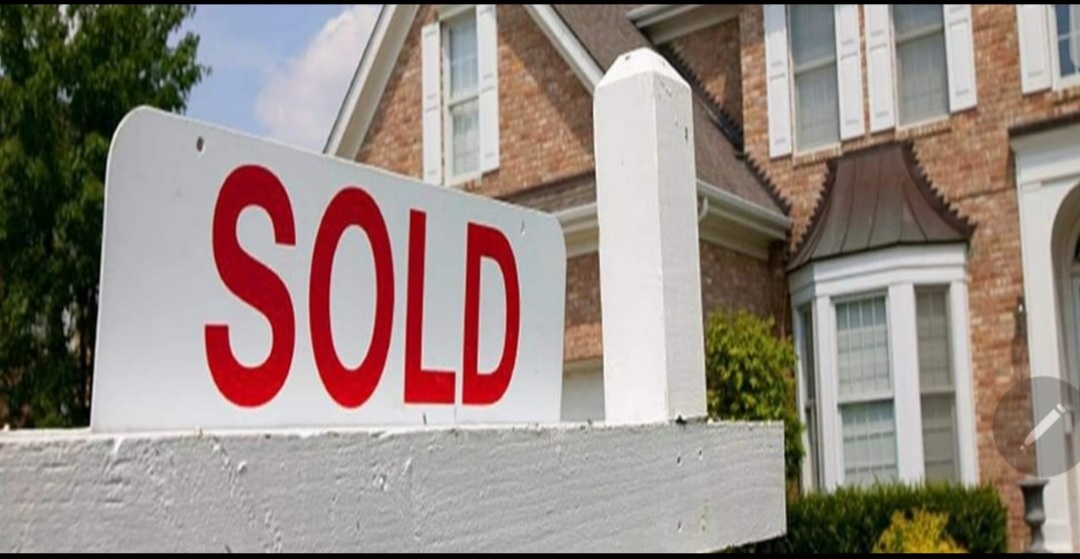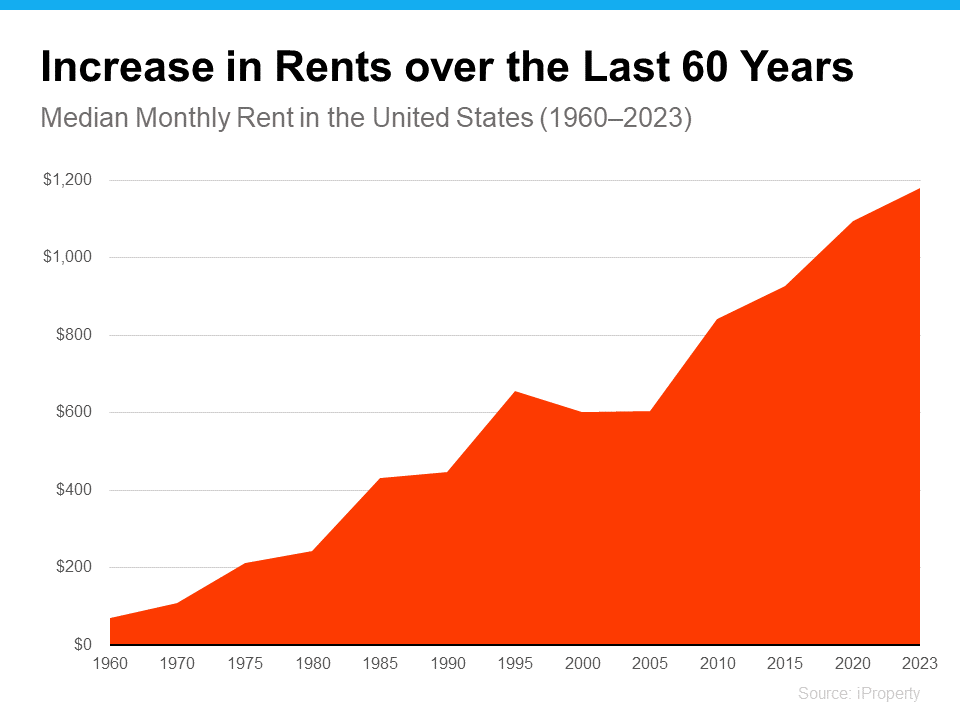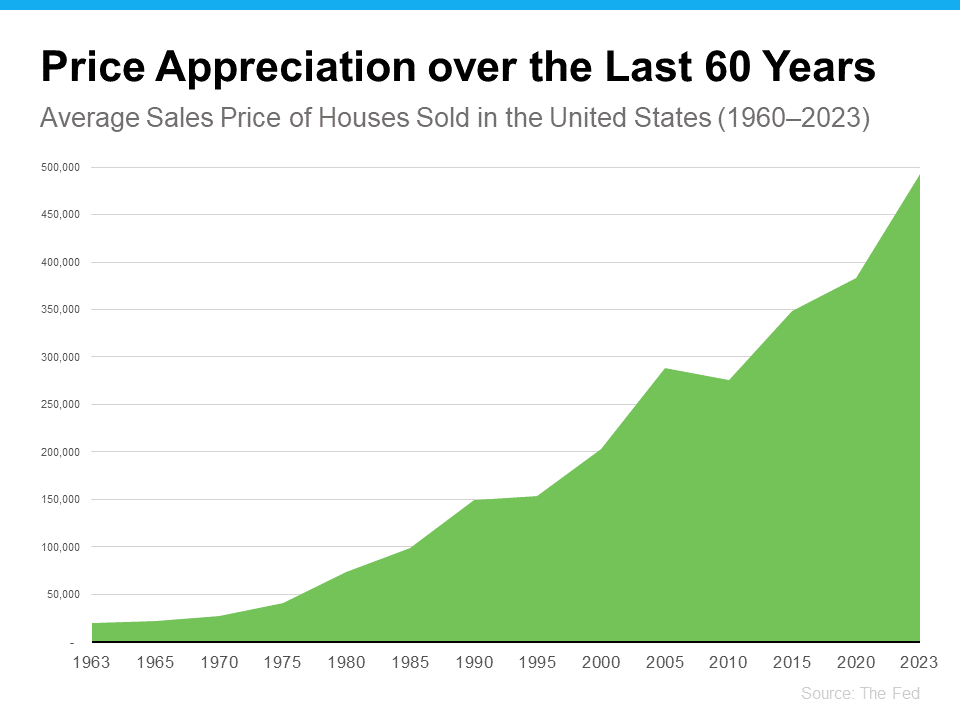To the dismay of would-be homebuyers, property prices just keep rising. It seems nothing — not even some of the highest mortgage rates of the past two decades — can stop the continued climb of home prices.
Prices increased once again in March, according to the National Association of Realtors (NAR), which reports that median existing-home prices were up 4.8 percent over last year — the ninth month in a row of year-over-year jumps. In another reflection of ongoing increases, the S&P CoreLogic Case-Shiller home price index for February was up 6.4 percent from a year earlier.
So much for the now-quaint notion that the post-pandemic “housing recession” would reverse some of the outsized price gains in homes. The U.S. housing market had finally started slowing in late 2022, and home prices seemed poised for a correction. But a strange thing happened on the way to the housing market crash: Home values started rising again.
Prices will remain firm and will not decline on a national level.
— LAWRENCE YUN, CHIEF ECONOMIST, NATIONAL ASSOCIATION OF REALTORS
NAR data shows that median sale prices of existing homes are near record highs. March 2024’s median of $393,500 is off the all-time-high of $413,800, but it’s the highest March median on record. (Seasonal fluctuations in home prices typically make late spring the highest-priced time of the year — the all-time-high was reached in June 2022.)
Home prices have also risen more quickly than wages, a reality that intensifies affordability challenges, says Lawrence Yun, NAR’s chief economist. “Any time home prices outpace people’s incomes, that is not good,” Yun told reporters recently. The result is a squeeze on first-time buyers — but repeat buyers can rely on gains from the housing market and their stock portfolios to finance purchases, he says.
Home values held steady even as mortgage rates soared to 8 percent in October 2023, reaching their highest levels in more than 23 years. (They have since dipped, falling briefly below 7 percent before averaging 7.39 percent in Bankrate’s weekly survey released May 1.) The main culprit is a lack of housing supply. Inventories remain frustratingly tight, with NAR’s March data showing only a 3.2-month supply.
“You’re not going to see house prices decline,” says Rick Arvielo, head of mortgage firm New American Funding. “There’s just not enough inventory.”
Skylar Olsen, chief economist at Zillow, agrees about the supply-and-demand imbalance. She predicts home prices will keep rising in 2024 — welcome news for sellers but not so great for first-time buyers struggling to become homeowners. “We’re not in that space where things are suddenly going to be more affordable,” Olsen says.
In fact, the trend is quite the opposite. According to Realtor.com’s April 2024 Housing Market Trends Report, high mortgage rates have increased the monthly cost of financing the typical home (after a 20 percent down payment) by 6.9 percent since last year. That equates to about $148 more in monthly payments than a buyer last April would have seen — a significant jump.
Taking all this into account, housing economists and analysts agree that any market correction is likely to be modest. No one expects price drops on the scale of the declines experienced during the Great Recession.
Is the housing market going to crash?
No. There are still far more buyers than sellers, and that means a meaningful price decline can’t happen: “There’s just generally not enough supply,” says Mark Fleming, chief economist at title insurer First American Financial Corporation. “There are more people than housing inventory. It’s Econ 101.”
Dave Liniger, the founder of a real estate brokerage, says the sharp rise in mortgage rates has skewed the market. Many would-be buyers have been waiting for rates to drop — but if mortgage rates do decline meaningfully, it could send new buyers flooding into the market, pushing up home prices.
“You’ve got an entire generation of pent-up demand,” Liniger says. “We’re in this fascinating position of tremendous demand and too little inventory. When interest rates do start to come down, it’ll be another boom-and-bust cycle.”
NAR’s Yun notes that some once-hot markets, like Austin, Texas, have seen small declines in prices. But he sees little chance of falling prices on a broader scale. “Prices will remain firm and will not decline on a national level,” he said.
Key housing market statistics
- According to Bankrate’s weekly national survey of large lenders, the average mortgage interest rate on a 30-year loan was 7.39 percent as of May 1.
- Existing-home sales fell 4.3 percent from February to March and were down 3.7 percent from March 2023 to March 2024 , the National Association of Realtors says.
- The nationwide median sale price in March was $393,500, NAR says. That’s an increase from both the previous month and the previous year, and a record high for the month.
- In March, the housing market had a 3.2-month supply of housing inventory, well below the 5 to 6 months needed for a healthy, balanced market — one that favors neither buyers nor sellers.
- A total of 96,349 U.S. homes had foreclosure filings — default notices, scheduled auctions or bank repossessions — in the first quarter of the year, according to the latest numbers from ATTOM Data Solutions. That’s up 2.6 percent from the previous quarter, but down 0.4 percent from Q1 2023. Delaware had the highest foreclosure rate of any state in the winter months, at one foreclosure filing for every 894 housing units.
Back in 2005 to 2007, the U.S. housing market looked downright frothy before home values crashed, with disastrous consequences. When the real estate bubble burst, the global economy plunged into the deepest downturn since the Great Depression. Now that the recent housing boom has been threatened by skyrocketing mortgage rates and a potential recession — Bankrate’s most recent expert survey puts the odds at 33 percent — buyers and homeowners are asking, when will the housing market crash?
However, housing economists agree that it will not crash: While prices could fall, the decline will not be as severe as the one experienced during the Great Recession. One obvious difference between now and then is that homeowners’ personal balance sheets are much stronger today than they were 15 years ago. The typical homeowner with a mortgage has stellar credit, a ton of home equity and a fixed-rate mortgage locked in at a low rate — in fact, a Realtor.com analysis from the end of 2023 found that two-thirds of all current mortgages had rates below the 4 percent mark.
What’s more, builders remember the Great Recession all too well, and they’ve been cautious about their pace of construction. The result is an ongoing shortage of homes for sale. “We simply don’t have enough inventory,” Yun says. “Will some markets see a price decline? Yes. [But] with the supply not being there, the repeat of a 30 percent price decline is highly, highly unlikely.”
Existing home prices
Economists have long predicted that the housing market would eventually cool as home values become a victim of their own success. After posting a year-over-year decrease in February 2023 for the first time in more than a decade, the median sale price of a single-family home has been on the rise again, with a 4.8 percent annual gain in March, according to NAR. That represents the ninth month in a row of year-over-year increases.
Overall, home prices have risen far more quickly than incomes. That affordability squeeze is exacerbated by the fact that mortgage rates have more than doubled since August 2021.





